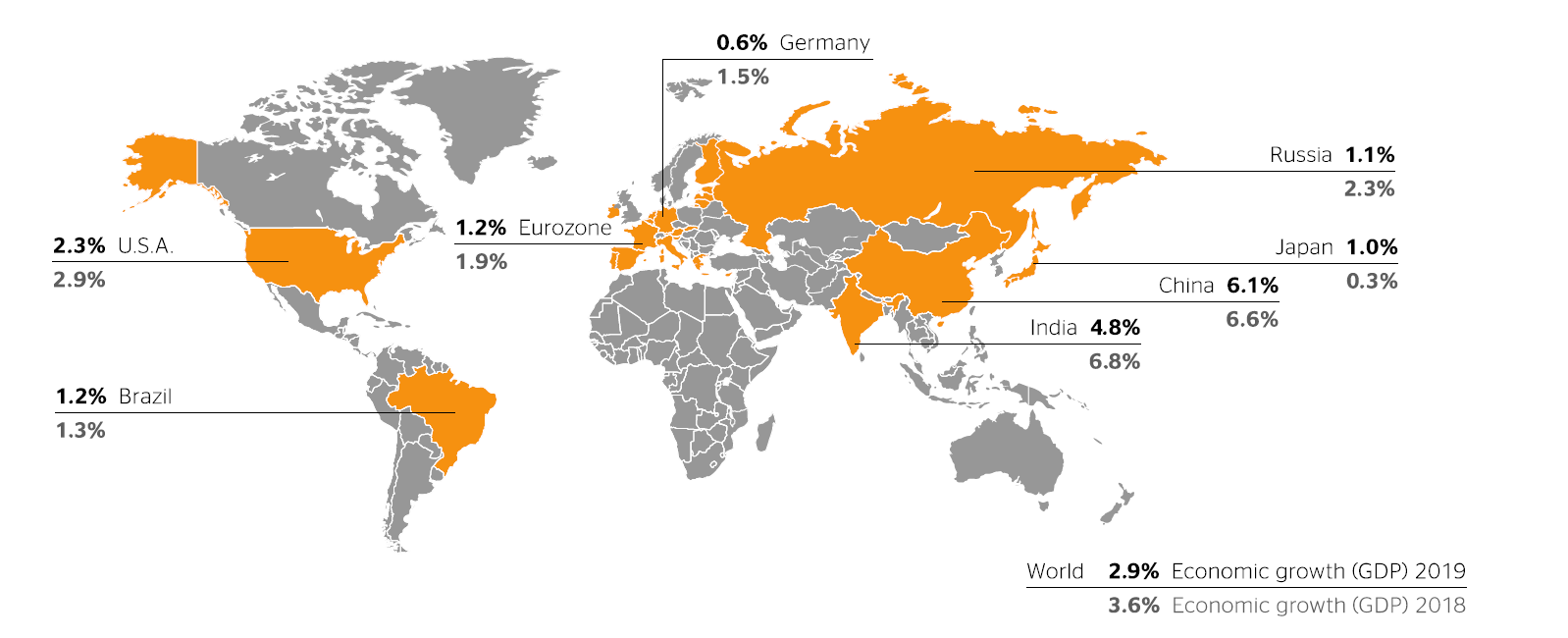Global economic growth noticeably slowed in fiscal 2019. In its January 2020 World Economic Outlook Update (WEO Update), the International Monetary Fund (IMF) indicated that the global economy grew by 2.9% in the year under review, compared with growth of 3.6% in the previous year. As a result of the slowdown in many countries over the course of the year, the IMF’s forecast of 3.5% growth from January 2019 was not achieved.
Economic momentum in the eurozone was dampened in the year under review by worldwide trade conflicts and uncertainty over the United Kingdom’s exit from the E.U. According to the latest figures from the statistical agency Eurostat, the eurozone economy achieved gross domestic product (GDP) growth of 1.2% in 2019 and thus fell short of the IMF forecast of 1.6% from January 2019. Within the eurozone, the German economy recorded particularly weak figures. According to initial calculations by the German Federal Statistical Office, its GDP increased by only 0.6% in 2019 compared with 2018 when adjusted for prices. This fell considerably short of the forecast of 1.3% issued by the IMF in January 2019.
Relatively stable GDP growth rates were observed – according to the January 2020 WEO Update – for the U.S.A. at 2.3%, China at 6.1% and Japan at 1.0%. In its January 2019 WEO Update, the IMF had anticipated growth of 2.5% for the U.S.A., 6.2% for China and 1.1% for Japan in 2019.
The Indian economy recorded a significant decline in growth in 2019 due to the liquidity crisis experienced by large non-regulated financial institutions, or shadow banks, and the associated credit crunch. In January 2020, the IMF estimated that GDP increased by 4.8% in 2019, having forecast growth of 7.5% a year earlier.
The Brazilian and Russian economies saw weaker development than expected by the IMF in 2019. In accordance with the January 2020 WEO Update, Brazil’s GDP growth came to 1.2% in the year under review – rather than the IMF’s forecast of 2.5% from January 2019. Russia also fell short of the IMF’s forecast of 1.6% from January 2019, with GDP growth of 1.1% according to the January 2020 WEO Update.







